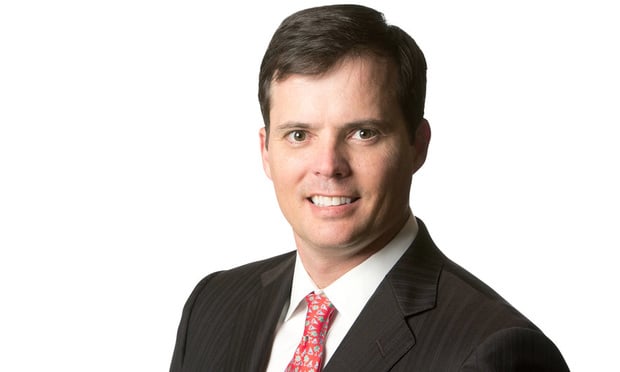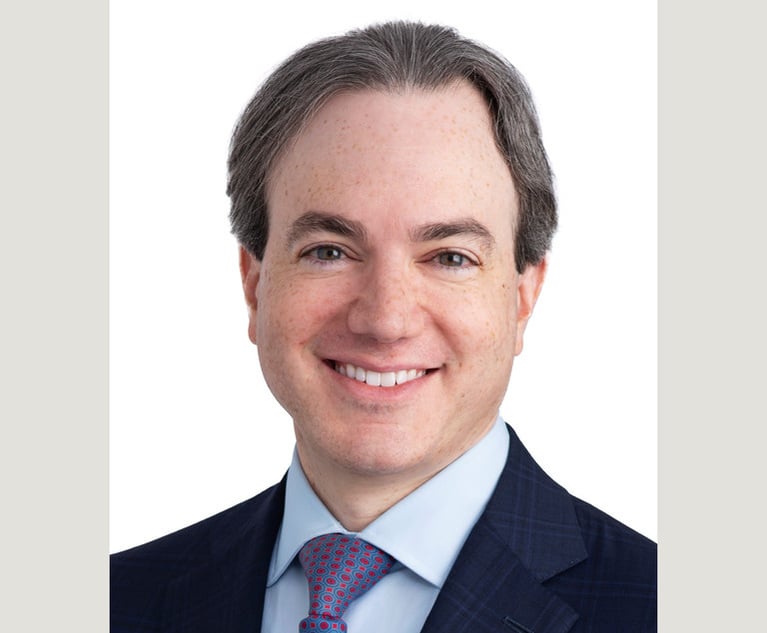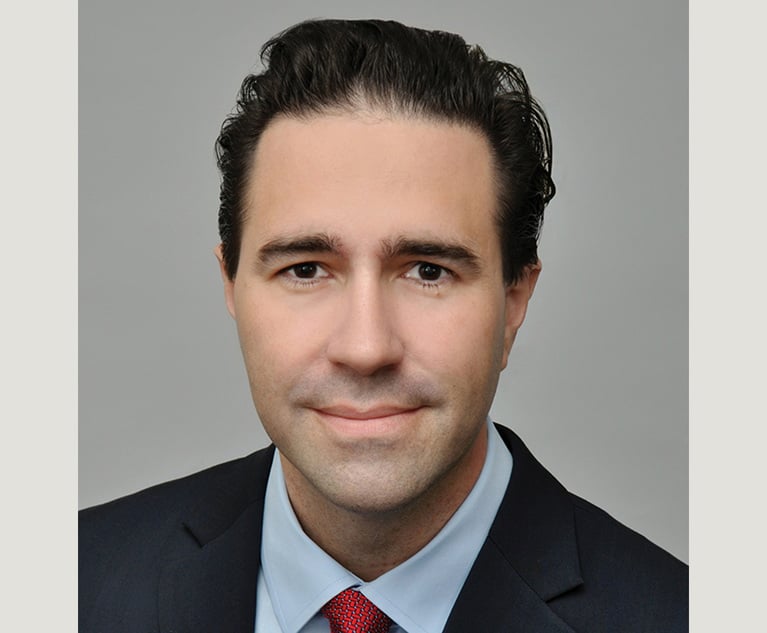NY Exxon Mobil Verdict Should Worry Mass. AG, Says Texas Securities Litigator
Michael Biles, a partner in the securities and litigation group at King & Spalding in Austin who was not involved in the matter, said this was the first case in which a state attorney general used the Martin Act for alleged securities fraud violations against a publicly traded oil and gas company for climate change-related disclosures.
December 17, 2019 at 05:34 PM
5 minute read
 Michael J. Biles of King & Spalding.
Michael J. Biles of King & Spalding.
The conclusion of the big climate change securities fraud case against Irving-based Exxon Mobil in New York last week didn't go the way the New York Attorney General's Office hoped.
New York State Supreme Court Judge Barry Ostrager ruled the New York attorney general failed to prove energy giant Exxon Mobil misled its investors and blasted the case as "hyperbolic." In the words of one attorney, the case was a major victory for Exxon Mobil and its attorneys, Theodore Wells and his colleagues at Paul, Weiss, Rifkind, Wharton & Garrison.
Michael Biles, a partner in the securities and litigation group at King & Spalding in Austin who was not involved in the matter, said this was the first case in which a state attorney general used the Martin Act for alleged securities fraud violations against a publicly traded oil and gas company for climate change-related disclosures.
Biles noted that climate change has been a hot-button issue for some years now and that there's been a lot of talk from activist shareholders that oil and gas companies aren't being truthful with shareholders about how their products impact the environment. That's why this case has garnered so much media attention, especially in Texas and within the energy industry, he said.
"The judge ruled in the trial decision that this really isn't a climate change case at all, and he's right—this is a securities disclosure case, and it concerned the really technical issue of how Exxon Mobil disclosed the future cost of carbon regulation," Biles said.
Ruling 'Shuts the Door' on Similar Futures Cases
What this case came down to is really myopic, Biles said.
"It's based on whether Exxon Mobil misled investors by having two estimates about the future costs of carbon: one, a higher estimate it disclosed to investors and used to predict the future demand for its products, and a second, undisclosed, but lower-cost estimate, which it called a 'greenhouse gas estimate' to analyze the profitability of potential oil and gas projects," Biles said.
This content has been archived. It is available through our partners, LexisNexis® and Bloomberg Law.
To view this content, please continue to their sites.
Not a Lexis Subscriber?
Subscribe Now
Not a Bloomberg Law Subscriber?
Subscribe Now
NOT FOR REPRINT
© 2025 ALM Global, LLC, All Rights Reserved. Request academic re-use from www.copyright.com. All other uses, submit a request to [email protected]. For more information visit Asset & Logo Licensing.
You Might Like
View All

Houston Law Firm Files $250K Breach of Contract Suit Against 2 Former Lawyers
3 minute read

O'Melveny, White & Case, Skadden Beef Up in Texas With Energy, Real Estate Lateral Partner Hires
5 minute readLaw Firms Mentioned
Trending Stories
- 1Data Breaches in UK Legal Sector Surge, According to ICO Data
- 2PayPal Faces New Round of Claims; This Time Alleging Its 'Honey' Browser Extension Cheated Consumers
- 3Fired NLRB Member Seeks Reinstatement, Challenges President's Removal Power
- 4NY Inspector General Announces Attorneys Hired to Lead Upstate Region and Gaming
- 5Carol-Lisa Phillips to Rise to Broward Chief Judge as Jack Tuter Weighs Next Move
Who Got The Work
J. Brugh Lower of Gibbons has entered an appearance for industrial equipment supplier Devco Corporation in a pending trademark infringement lawsuit. The suit, accusing the defendant of selling knock-off Graco products, was filed Dec. 18 in New Jersey District Court by Rivkin Radler on behalf of Graco Inc. and Graco Minnesota. The case, assigned to U.S. District Judge Zahid N. Quraishi, is 3:24-cv-11294, Graco Inc. et al v. Devco Corporation.
Who Got The Work
Rebecca Maller-Stein and Kent A. Yalowitz of Arnold & Porter Kaye Scholer have entered their appearances for Hanaco Venture Capital and its executives, Lior Prosor and David Frankel, in a pending securities lawsuit. The action, filed on Dec. 24 in New York Southern District Court by Zell, Aron & Co. on behalf of Goldeneye Advisors, accuses the defendants of negligently and fraudulently managing the plaintiff's $1 million investment. The case, assigned to U.S. District Judge Vernon S. Broderick, is 1:24-cv-09918, Goldeneye Advisors, LLC v. Hanaco Venture Capital, Ltd. et al.
Who Got The Work
Attorneys from A&O Shearman has stepped in as defense counsel for Toronto-Dominion Bank and other defendants in a pending securities class action. The suit, filed Dec. 11 in New York Southern District Court by Bleichmar Fonti & Auld, accuses the defendants of concealing the bank's 'pervasive' deficiencies in regards to its compliance with the Bank Secrecy Act and the quality of its anti-money laundering controls. The case, assigned to U.S. District Judge Arun Subramanian, is 1:24-cv-09445, Gonzalez v. The Toronto-Dominion Bank et al.
Who Got The Work
Crown Castle International, a Pennsylvania company providing shared communications infrastructure, has turned to Luke D. Wolf of Gordon Rees Scully Mansukhani to fend off a pending breach-of-contract lawsuit. The court action, filed Nov. 25 in Michigan Eastern District Court by Hooper Hathaway PC on behalf of The Town Residences LLC, accuses Crown Castle of failing to transfer approximately $30,000 in utility payments from T-Mobile in breach of a roof-top lease and assignment agreement. The case, assigned to U.S. District Judge Susan K. Declercq, is 2:24-cv-13131, The Town Residences LLC v. T-Mobile US, Inc. et al.
Who Got The Work
Wilfred P. Coronato and Daniel M. Schwartz of McCarter & English have stepped in as defense counsel to Electrolux Home Products Inc. in a pending product liability lawsuit. The court action, filed Nov. 26 in New York Eastern District Court by Poulos Lopiccolo PC and Nagel Rice LLP on behalf of David Stern, alleges that the defendant's refrigerators’ drawers and shelving repeatedly break and fall apart within months after purchase. The case, assigned to U.S. District Judge Joan M. Azrack, is 2:24-cv-08204, Stern v. Electrolux Home Products, Inc.
Featured Firms
Law Offices of Gary Martin Hays & Associates, P.C.
(470) 294-1674
Law Offices of Mark E. Salomone
(857) 444-6468
Smith & Hassler
(713) 739-1250






